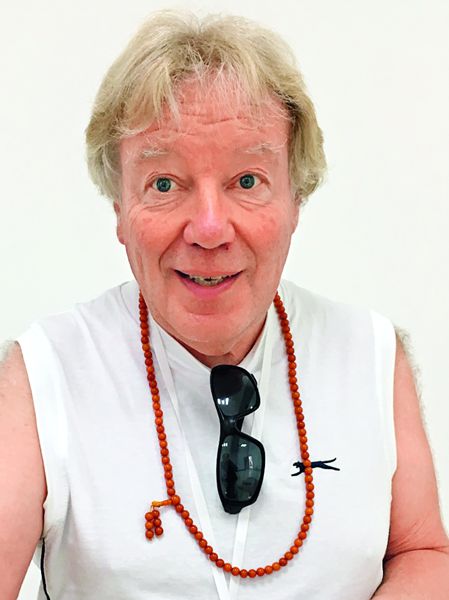Roy Watkins: Custodian of TCM and Its Tibetan Branch
China Today, January 23, 2017 Adjust font size:
ROY Watkins, a member of the British Acupuncture Council, has been a practitioner of Chinese acupuncture for more than three decades. While attending the Sixth Beijing International Seminar on Tibetan Studies last August he was heartened to see how many scholars are as dedicated as he is to the preservation of Tibetan culture and traditions.
Affinity with TCM and Tibetan Medicine
“Let me first take your pulse,” is what Watkins says to his patients before asking them anything else. Now in his 60s, Watkins works at the Ulverston Health Center in Cambria, U.K. In contrast to standard general practitioners, (or GPs, as family doctors are known in the U.K.) he uses natural therapies such as acupuncture and medicated baths, rather than prescription drugs, to treat his patients’ ailments.

Roy Watkins has been a practitioner of Chinese acupuncture for more than 30 years.
Watkins presented a slide show of the results of his research on the effect of Tibetan medicated baths on human blood at the Beijing seminar. His experiments revealed that red blood cells react favorably to Tibetan medicine. “Standard blood tests detect chemical components in the blood, but take no account of other data,” Watkins explained. The slides showed the dramatic difference between the chaotic red blood cell distribution before the five-minute immersion in a hot foot bath containing Tibetan medicine and that after the bath, which was far more healthy and orderly. Adding powdered gold – an ingredient often used in high-end Tibetan medicine – produced the more beneficial effect of closer alignment of the red blood cells, which enables them to perform better their function of transporting oxygen.
Watkins feels he has an innate love of Tibet and its culture. At age three, he randomly picked up a book by a German writer about his experience of living in Tibet after WWII. “I clearly recall a peculiar sensation at first sight of that book, and it grew stronger when I looked at the pictures of Tibet,” Watkins said.
His father, a scientist all his life, expected his son eventually to be a physicist. Watkins indeed obtained ScD, but later changed his path. “As a physicist, I always wondered how the universe came into being and how it worked, but I found that these questions are answered in ancient Oriental classic volumes.”
Watkins’ interest in seeking a natural way to cure and benefit humanity grew. He eventually witnessed the remarkably curative effect of silver acupuncture needles used in traditional Chinese medicine (TCM). Compelled to find out how this worked, he took a course of study at the College of Traditional Acupuncture in England. Fascinated with the concept of acupoints and intrigued by the therapeutic efficacy of acupuncture, he later took a training course in Russia which honed his skills. But it was not until he met Huang Fukai, director of the Beijing Tibetan Hospital in Italy, that Watkins became fully committed to Tibetan medicine.